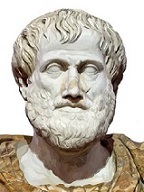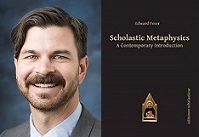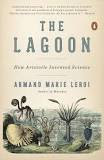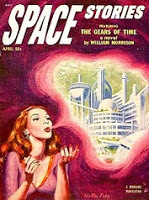Edward Feser's Blog, page 63
September 30, 2017
Aristotle on Medved
 Yesterday I appeared on The Michael Medved Showwith Skeptic magazine’s Michael Shermer. (Unfortunately, the podcast seems to be behind a paywall. [Update: A reader kindly calls my attention to this link, where you can listen to the show.]) It was billed as a “debate,” though I would describe it as more of a friendly discussion. Shermer was very polite and even complimentary about my book
Five Proofs of the Existence of God
, which I appreciate. (Shermer says: "It's a good book... well-argued, well-articulated.") Naturally, he does not agree with the book, but as every philosopher knows, you can find a book interesting and worth reading and thinking about even if you don’t agree with it. But as it happens, we did end up agreeing on a few things, such as the weaknesses in certain pop arguments for God’s existence.Medved started things off in an unusual and, I think, very interesting way. His first question to me was about what I thought was the weakest of the five arguments I defend in the book. Now, naturally I don’t think any of the proofs is weak. But some of them require more in the way of background argumentation for their key premises, and thus are bound to be less convincing to a determined skeptic. Based on that criterion, I cited the Augustinian proof, though perhaps on further reflection I’d opt for one of the others.
Yesterday I appeared on The Michael Medved Showwith Skeptic magazine’s Michael Shermer. (Unfortunately, the podcast seems to be behind a paywall. [Update: A reader kindly calls my attention to this link, where you can listen to the show.]) It was billed as a “debate,” though I would describe it as more of a friendly discussion. Shermer was very polite and even complimentary about my book
Five Proofs of the Existence of God
, which I appreciate. (Shermer says: "It's a good book... well-argued, well-articulated.") Naturally, he does not agree with the book, but as every philosopher knows, you can find a book interesting and worth reading and thinking about even if you don’t agree with it. But as it happens, we did end up agreeing on a few things, such as the weaknesses in certain pop arguments for God’s existence.Medved started things off in an unusual and, I think, very interesting way. His first question to me was about what I thought was the weakest of the five arguments I defend in the book. Now, naturally I don’t think any of the proofs is weak. But some of them require more in the way of background argumentation for their key premises, and thus are bound to be less convincing to a determined skeptic. Based on that criterion, I cited the Augustinian proof, though perhaps on further reflection I’d opt for one of the others. Anyway, Medved then asked Shermer what he thought was the argument from my book that is the most challenging to his own, skeptical position. His answer was the Aristotelian argument.
I don’t want to make too much of this, and I don’t know exactly how challenging or weak Shermer thinks the argument is at the end of the day. But it is an interesting response nonetheless. Aristotle’s argument for an Unmoved Mover is often quickly dismissed or ignored altogether on the grounds that it rests on archaic physics. But it doesn’t, as I show in the book. When people come to see this and consider more carefully the basic idea of the argument, I find that they often find it much more interesting than they had initially realized it was.
This was certainly my own reaction when I first began to examine the argument (in Aquinas’s version) more carefully back in my atheist days. Indeed, the Aristotelian proof, along with the rationalist proof, ultimately convinced me that atheism was false. I have found that many of my readers over the years have also come to give up atheism after being convinced by the Aristotelian proof.
As I noted in The Last Superstition , atheist philosopher Antony Flew attributed his late conversion to philosophical theism in part to a deeper examination of Aristotle. (Flew’s atheist critics at the time ignored this aspect of the story, preferring to turn the Flew controversy into yet another tiresome debate about “Intelligent Design” theory.) Flew was influenced by the philosophical theism defended in David Conway’s important book The Rediscovery of Wisdom: From Here to Antiquity in Quest of Sophia , in which Aristotle’s Unmoved Mover plays a key role. As I noted in my recent review of his book The Lagoon, Armand Marie Leroi there states: “Had I a God – had I a God – it would be Aristotle’s God.”
Aquinas famously described the Aristotelian argument from motion as the “more manifest” way of demonstrating God’s existence, and the attraction and interest it has even for some otherwise highly skeptical readers perhaps provides some confirmation for this.
It is worth adding that secular readers who are not at all attracted to Aristotle’s theology nevertheless often find themselves attracted to other elements of his philosophy – hence the neo-Aristotelian revivals in metaphysics and in ethics within contemporary academic philosophy.
Mid-twentieth-century Catholic critics of Neo-Scholasticism thought that the Aristotelianism of Thomists and other Scholastics couldn’t speak to modern people. Part of the problem with this is that what ultimately matters is whether an Aristotelian position on some issue is true, and if it is true, then it ought to be defended and applied, whether or not it is popular. But another problem is that it simply isn’t the case that a modern audience can’t take Aristotelian ideas seriously, as examples like the ones just given indicate.
Published on September 30, 2017 11:58
September 29, 2017
Ward on Scholastic Metaphysics
 In the Winter 2017 issue of Pro Ecclesia, Baylor University philosopher Thomas M. Ward kindly reviews my book
Scholastic Metaphysics: A Contemporary Introduction
. From the review:
In the Winter 2017 issue of Pro Ecclesia, Baylor University philosopher Thomas M. Ward kindly reviews my book
Scholastic Metaphysics: A Contemporary Introduction
. From the review: This accessible, insightful, entertaining book introduces and defends Scholastic, mostly Thomistic, metaphysics in dialogue with important figures from contemporary analytic metaphysics… Feser is blessed with a clear and entertaining prose style, which makes it all the more enjoyable to engage his philosophical work. I highly recommend this book…Feser does a good job at highlighting rival views on disputed points and maintaining a sense that scholastic philosophers despite their differences are allies against common foes…
Feser argues that scientism is self-refuting, because the scientistic claim… cannot itself be established on scientific grounds. This alone is decisive against scientism, but Feser goes on to develop several additional lines of attack. This section is quite good and very entertaining…
Feser’s discussion of causal powers is especially rich and deeply in dialogue with contemporary analytic philosophers…
This review just scratches the surface of Feser’s admirable introduction to scholastic metaphysics. It is refreshing, even inspiring, to see great philosophical work which takes these old medieval thinkers seriously enough to consider whether they might have got a few things right. After Feser’s book, you might be persuaded they got more than a few right!
Published on September 29, 2017 07:51
September 26, 2017
This week in radio
 Having recommended my book
The Last Superstition
in a recent podcast, in yesterday’s show Ben Shapiro kindly recommended
Five Proofs of the Existence of God
. (His comments about the book occur about 41 minutes into the show.) Thanks, Ben! This week I’ll be recording a Skype interview for Ben’s Facebook Live podcast, which will run next Monday.
Having recommended my book
The Last Superstition
in a recent podcast, in yesterday’s show Ben Shapiro kindly recommended
Five Proofs of the Existence of God
. (His comments about the book occur about 41 minutes into the show.) Thanks, Ben! This week I’ll be recording a Skype interview for Ben’s Facebook Live podcast, which will run next Monday. This Friday I will appear on The Michael Medved Show at 1:00 pm PT to debate Michael Shermer on the subject of atheism versus theism.Also on Friday: At 6:45 am PT I will be appearing on Morning Air with John Harper . At 3:00 pm PT I will appear on A Closer Look with Sheila Liaugminas .
More media appearances to come. Meanwhile, you can now hear podcasts from my recent interviews on Kresta in the Afternoon (the interview begins about 23 minutes into the show), on The Drew Mariani Show guest-hosted by Hot Air’s Ed Morrissey (the interview begins about 23 minutes into the show), and Live Hour with Todd Sylvester (the interview begins about 7 minutes into the show).
Published on September 26, 2017 18:06
September 25, 2017
Review of Leroi’s The Lagoon
 My review of Armand Marie Leroi’s excellent book
The Lagoon: How Aristotle Invented Science
appears in the September issue of Isis: Journal of the History of Science Society.
My review of Armand Marie Leroi’s excellent book
The Lagoon: How Aristotle Invented Science
appears in the September issue of Isis: Journal of the History of Science Society. The link takes you to just the first page of the review, but as it happens there are only a few further sentences on the page that follow it. So when you’re done reading what you see at the link, come back here for the rest of the review. Here it is:
Commenting on Aristotle’s view that function is so central to a thing’s nature that a corpse is not strictly speaking a man at all, Leroi writes, “From this point of view, a male cuttlefish who copulates with a dead female is not only wasting his time but making a serious philosophical mistake” (p. 159).
The book’s chief deficiency is that Leroi does not afford certain other thinkers the charitable reading he insists that Aristotle get. In particular, he is too hard on Aristotle’s predecessor, Plato, and on his successors, the Scholastics. While demolishing the clichés that surround Aristotle, he perpetuates those obscuring our view of these other writers. It is as if Leroi thinks he cannot defend his hero without finding someone else to beat up on.
But this is a book about Aristotle and not about them, so this weakness does little harm. Perhaps correcting it could give Leroi material for a sequel.
Published on September 25, 2017 16:48
September 22, 2017
Thought-free blogs
 Perhaps the most vivid manifestation of the cluelessness of New Atheists is their strange compulsion to comment at length on books they admit they have not read. Naturally, you see this frequently from anonymous doofuses in comboxes, Amazon reviews, and the like. But what is really remarkable is how often even otherwise intelligent and educated people make fools of themselves by doing exactly what they accuse religious believers of doing – forming an opinion based on preconceptions rather than the actual evidence. We saw biologist Jerry Coyne do this a few years ago when he devoted over 5000 words across two blog posts to harshly criticizing a David Bentley Hart book he admitted he had not read. The latest example comes from theoretical physicist Mano Singham at Freethought Blogs.Singham’s target is my new book
Five Proofs of the Existence of God
, about which he makes some highly critical remarks, despite admitting twice in the course of his blog post that he has not read it. Here’s my favorite line:
Perhaps the most vivid manifestation of the cluelessness of New Atheists is their strange compulsion to comment at length on books they admit they have not read. Naturally, you see this frequently from anonymous doofuses in comboxes, Amazon reviews, and the like. But what is really remarkable is how often even otherwise intelligent and educated people make fools of themselves by doing exactly what they accuse religious believers of doing – forming an opinion based on preconceptions rather than the actual evidence. We saw biologist Jerry Coyne do this a few years ago when he devoted over 5000 words across two blog posts to harshly criticizing a David Bentley Hart book he admitted he had not read. The latest example comes from theoretical physicist Mano Singham at Freethought Blogs.Singham’s target is my new book
Five Proofs of the Existence of God
, about which he makes some highly critical remarks, despite admitting twice in the course of his blog post that he has not read it. Here’s my favorite line:I have not read his new book and so can only guess at these proofs but going by the names that are dropped I can guess that they consist of warmed over versions of the prime mover, Kalam, design, and the ontological arguments.
End quote. Where does one begin?
First, the “names that are dropped” to which Singham refers are those of Aristotle, Plotinus, Augustine, Aquinas, and Leibniz. Why on earth would anyone conclude from those names that the book defends the kalam, design, and ontological arguments, specifically? (I do, of course, defend Aristotle’s prime mover argument.)
Second, not only do I not defend the kalam, design, and ontological arguments in the book, but I have, of course, been critical of each of those arguments here at the blog and elsewhere.
Third, why would an academic and a scientist who presumably prides himself on grounding his opinions in empirical evidence, avoiding the rationalization of preordained conclusions, etc. want to make a judgment on the basis of a “guess” as to what is in the book instead of actually looking at the book itself? Even if he just wanted to find out what arguments are actually covered without reading the book, he could do that in five seconds by using the “Look inside” function at Amazon.
The rest of the post isn’t any better. Singham writes:
One of the paradoxical signs that god does not exist is how religious apologists keep trying to prove that s/he does exist. After all, no one tries to prove that the Earth exists or that the Sun exists. Surely the existence of gods should be at least as manifest.
End quote. What we have here is a variation on what’s called the “divine hiddenness” objection. And as it happens, I reply to that objection at some length in the book, at pp. 300-304 – which Singham would know if he’d bothered even to skim through the book before raising this objection against it.
Then there’s this remark:
David Hume back in 1779 dismissed the idea that one could prove the existence of a god using rational arguments alone in his Dialogues Concerning Natural Religion.
End quote. Gee, if only I’d been aware of Hume’s objections before writing my book! Oh wait… that’s right, I also doin fact respond to Hume’s various objections at some length throughout the course of the book – as, again, Singham would know if he’d bother to take a look at it before opening his mouth. (By the way, Hume died in 1776, and thus wasn’t doing any “dismissing,” or much of anything else other than rotting, in 1779. Apparently, Singham can’t be bothered even to read Wikipedia, much less books, but instead “guesses” – as always, wrongly – what it says.)
Singham also objects that “the whole idea of ‘proof’ in the mathematical sense has no place when it comes to establishing empirical facts such as the existence of entities.” Well, I am not using the mathematical notion of proof, but I do address objections to the use of the word “proof” in the book, at pp. 305-307 – which, once again, a glance at the book would have told Singham.
Singham also complains that “as wags have suggested before, you would not need five arguments for god’s existence if any one of them were really good.” It’s amazing how many atheists are impressed by this very silly objection. Consider that any good prosecuting attorney will develop several lines of argument to establish the guilt of the accused, and any good defense attorney will develop several lines of argument in order to undermine the prosecutor’s case. No one would make the absurd suggestion that either attorney’s case is somehow suspect because he’s got more than one argument! Or consider the evolutionary biologist who calls attention to several lines of evidence that point to descent with modification – homologies, DNA evidence, and so forth. No one would make the moronic remark that if descent with modification were real, then one line of argument should be enough to establish it.
Yet when a theist suggests that there are multiple lines of argument that establish God’s existence, some atheists (namely the “New” type) pretend that this is somehow a weakness in the theist’s position. Why the double standard? How did so manifestly asinine a “criticism” ever come to have the popularity it does?
Could it get any worse? As always with New Atheist types, it can, and swiftly does. Singham links to another post he wrote about me several years ago. And what that post shows is that the reason Singham did not read my book before criticizing it is that, apparently, he does not know how to read.
Singham quotes from an answer I gave some years ago to a question a reader asked me about how one could argue that the First Cause of philosophical arguments for God’s existence is identical to the God of Christianity. I responded by summarizing the various lines of argument a Christian apologist should set out, and in what order he ought to proceed. For example, I said that one should first set out arguments for God’s existence, for the divine attributes, for divine conservation, for the immortality of the soul, etc.; that one should also develop objections to the rival world religions before moving on to the positive defense of Christianity; that one should, only after doing all this, address the question of Christ’s resurrection, the Trinity, and other specifically Christian claims; and so on. (I have since addressed this issue at greater length in a post from a few years ago.)
In other words, I was simply summarizing how the branch of theology known as apologetics would set out its main topics and lines of argument.
Now, here is Singham’s utterly bizarre characterization of what I had said:
For mainstream Christians, if one is baptized, usually as a newborn infant, you are considered a Christian. As far as evangelical Christians are concerned, all you have to do is say that you accept Jesus Christ as your lord and savior…
But is it that simple to be a Christian? Not everyone thinks so…
Singham then quotes some of the points I made in reply to the reader and then says:
That’s pretty heavy duty stuff. I would have thought that would have been formidable enough to cause any rational Christian to immediately throw in the towel. Note also that you are expected to show all these through independent and purely philosophical arguments….
But wait, there’s more! He then says that to be a Christian, you also have to be able to show why all the other religions are false…
So there you go, Christians. None of that wishy-washy “If you accept Jesus as your savior, you are a Christian” short cut. That’s for slackers. Get to work meeting all of Feser’s requirements before calling yourself a Christian.
End quote. In other words, according to Singham, what I claimed is that in order to be a Christian, one has to develop extremely sophisticated and detailed lines of argument that only a very few people have the time, skill, or knowledge for. Baptism is not enough.
How a person with basic reading skills who is both intellectually honest and not under the influence of drugs, alcohol, or paint thinner could possibly see that in what I wrote, I have no idea. Again, I was (quite obviously) talking about what an apologist should do, not what the average Christian needs to do.
But then, Singham doesn’t really read things before commenting on them. He “guesses” what is in them, and goes from there.
This kind of stuff, it seems, is what passes for “thought” at “Freethought Blogs.”
Related reading:
To a louse
A clue for Jerry Coyne
Walter Mitty atheism
Jerry-built atheism
Published on September 22, 2017 18:12
September 19, 2017
Conversations with Klavan et al.
 My recent interview on Daily Wire’s The Andrew Klavan Show has now been posted. You can hear the audio at the Daily Wire website or at Ricochet, and you can see the video either at the Daily Wire (if you are a subscriber) or on Facebook. We talk about
The Last Superstition
, mechanism versus teleology, natural law, and
Five Proofs of the Existence of God
.
My recent interview on Daily Wire’s The Andrew Klavan Show has now been posted. You can hear the audio at the Daily Wire website or at Ricochet, and you can see the video either at the Daily Wire (if you are a subscriber) or on Facebook. We talk about
The Last Superstition
, mechanism versus teleology, natural law, and
Five Proofs of the Existence of God
. Also now available online is my recent interview on Bill Martinez Live . The subject is Five Proofs and the segment begins a little over 6 minutes into the show.If you’re on Facebook, you can listen to my recent appearance on the Catholic Community Radio show Wake Up! The subject is Five Proofs and the segment starts about 25 minutes into the show.
On Forte Catholic today I was interviewed on the subject of By Man Shall His Blood be Shed . You can listen to the podcast here.
Published on September 19, 2017 19:04
September 15, 2017
McGinn on mind and space
 Thoughts and experiences seem to lack spatial location. It makes sense to say of a certain cluster of neurons firing that they are located several centimeters in from your left ear. But it seems to make no sense to say that your experience of feeling nervous, or your thought about the Pythagorean Theorem, is located several centimeters in from your left ear. After all, no one who opened up your skull or took an X-ray of your head would see the thought or the experience, nor would either be detectible through any other perceptual means. In his book
The Mysterious Flame: Conscious Minds in a Material World
, Colin McGinn defends this commonsense supposition that mental states and processes are not locatable in space.This is one reason McGinn does not subscribe to any of the standard versions of materialism (though he is not a dualist either). Material things and processes are spatially locatable, so that it cannot, in any straightforward sense, be said that a thought or experience is identical to a material thing or process. Or at least, this conclusion seems to follow, in McGinn’s view, unless we come up with some alternative conception of space.
Thoughts and experiences seem to lack spatial location. It makes sense to say of a certain cluster of neurons firing that they are located several centimeters in from your left ear. But it seems to make no sense to say that your experience of feeling nervous, or your thought about the Pythagorean Theorem, is located several centimeters in from your left ear. After all, no one who opened up your skull or took an X-ray of your head would see the thought or the experience, nor would either be detectible through any other perceptual means. In his book
The Mysterious Flame: Conscious Minds in a Material World
, Colin McGinn defends this commonsense supposition that mental states and processes are not locatable in space.This is one reason McGinn does not subscribe to any of the standard versions of materialism (though he is not a dualist either). Material things and processes are spatially locatable, so that it cannot, in any straightforward sense, be said that a thought or experience is identical to a material thing or process. Or at least, this conclusion seems to follow, in McGinn’s view, unless we come up with some alternative conception of space.Putting aside for purposes of the present post what McGinn has to say about the possibility of an alternative conception of space, let’s consider a speculation that he develops on the basis of the ordinary notion of space. Time and space as we know them now came into being, it is commonly held, with the Big Bang. McGinn suggests that the Big Bang must have had a cause. Not being a theist, he does not think of this as a divine cause. But he does think that, since it was the cause of the existence of space, it must itself be non-spatial.
Now, the problem that mind and space pose for materialism, in McGinn’s view, is that it is difficult to see how matter, which is spatial, can give rise to mind, which is non-spatial. Yet the example of the Big Bang, he suggests, shows that the causal relation can go in the other direction. That is to say, the non-spatial can give rise to the spatial. How this works is not something McGinn claims to understand. His claim is only that it does seem to happen. Furthermore, there is, he acknowledges, an obvious causal relation of somesort between mental events and material events in the brain. So, if it is reasonable to think that the non-spatial can give rise to the spatial, it seems no less reasonable to think that the spatial can give rise to the non-spatial. In McGinn’s view, there is arguably some kind of natural process by which one gives rise to the other and vice versa.
The idea is reminiscent of Plato’s cyclical argument in the Phaedo, which holds that things arise out of their opposites (though McGinn does not deploy the idea to argue for the soul’s immortality, as Plato does). If the spatial and non-spatial can give rise to one another, then maybe, McGinn suggests, what is happening when brain events give rise to mind is a kind of miniature and partial reversal of the process that caused the Big Bang. McGinn is well aware that this sounds pretty weird. But he is just “spit-balling” rather than putting it forward as a settled opinion, and he thinks that accounting for the mind is in any case bound to require entertaining some unusual possibilities.
Now, McGinn treats the non-spatial as if it were distinct from the mental. He seems to suppose that, just as space may or may not contain some particular material object, so too the non-spatial, whatever it is like, may or may not contain mental states and processes. His proposal seems to be that the non-spatial reality that preceded the Big Bang was non-mental, and that when the brain gives rise to the mind, what happens is that it generates a non-spatial reality to which mental features are somehow at the same time added.
But why suppose that this is what is going on? It is, after all, controversial whether space could exist in the absence of any matter whatsoever. Space could exist whether or not chairs or trees exist, but it is not so clear that it could exist if there were no physical objects at all. So, by analogy, why suppose that non-spatial reality could exist in the absence of any mentalfeatures whatsoever? Why not suppose instead that for the non-spatial to exist is ipso facto for something mental to exist? As far as I can tell, McGinn gives no explicit reason for denying this. He just takes it for granted that some kind of non-spatial reality could exist completely apart from the mental.
To be sure, McGinn does note that numbers are examples of things that do not exist in a spatial way. You can perceive the numeral “3,” but you cannot perceive the number 3. So might McGinn not argue that numbers and other mathematical objects provide a model for what it would be for a non-spatial reality to exist apart from anything mental?
But there are a couple of problems with this suggestion. First, abstract objects like numbers are generally understood to be causally inert. The number 3, for example, can’t do anything. Yet the non-spatial kind of reality McGinn posits is supposed to be causally efficacious. It can cause the Big Bang, for example. So, what McGinn needs to show is that there could be something that is non-spatial, non-mental, and causally efficacious all at the same time. Numbers and other abstract objects don’t provide examples of that.
Another problem is that it is debatable whether numbers and other abstract objects really can exist apart from minds in the first place. Aristotelian realists argue that they cannot. Abstract objects, on their view, exist only in intellects which abstract them from concrete individuals. The universal TRIANGULARITY, for example, exists only in intellects which abstract that pattern from concrete individual triangles. THREENESS is another abstraction that exists only in an intellect that abstracts that pattern from concrete individuals. And so forth. (See chapter 3 of my book Five Proofs of the Existence of God for a defense of this view – or to be more precise, for a defense of the Scholastic realist variation on the Aristotelian view.)
Suppose, then, that McGinn is wrong, and that any concrete and causally efficacious non-spatial reality would be mental in its nature. Then, for one thing, when brains generate minds (as he says they do), there aren’t two things going on here, viz. the generation of something non-spatial and then a separate act of addition to this non-spatial reality of mental properties. Rather, there is just one thing, the generation of a non-spatial-cum-mental reality. For another thing, and perhaps more momentously, for the Big Bang to have been generated by a non-spatial reality would ipso facto for it to have been generated by a mind of some sort.
Would this amount to a theistic scenario – to God’s creating the universe at the Big Bang? No, not necessarily, and certainly not without further argumentation. For one thing, there is nothing in the cyclical scenario described by McGinn that would entail that the non-spatial cause of the Big Bang is infinite in nature, or something that exists of absolute necessity, or that it has the other divine attributes. It could be a merely finite (if still impressive) mind of some sort.
For another thing, the cyclical process posited by McGinn would in fact if anything point away from a truly theistic scenario. He thinks of the non-spatial giving rise to the spatial and vice versa. He also thinks of the spatial as giving rise to finite, human non-spatial minds. So, even if he were to accept that the cause of the Big Bang was a mind of some sort, his model would seem to entail (by analogy with the spatial to non-spatial direction of causation) that it might be a merely finite mind, and a mind that itself arose from some previous spatial reality. Those are not conclusions that are compatible with genuine theism (certainly not classical theism).
If McGinn’s supposition that the non-spatial reality that he speculates may have caused the Big Bang would be non-mental is motivated by a desire to avoid theism – though I hasten to add that he does not say or imply that it is – then he needn’t have worried. Though McGinn’s speculations go well beyond anything most materialists would be comfortable with, they are still pretty firmly within a naturalistframework, broadly construed. McGinn advocates expanding our conception of the natural world, even radically. But that is a different thing from the view that there is something beyond the natural world. (McGinn’s naturalism is more like Thomas Nagel’s than like Alex Rosenberg’s, but it is still naturalism.)
Published on September 15, 2017 11:18
September 11, 2017
Radio activity
 Today on his Daily Wire podcast, Ben Shapiro kindly recommended my book
The Last Superstition
, characterizing it as “really fantastically written” and “rare for a philosophy book, really readable and lucid.” His comments on the book can be heard about 38 minutes into the show.
Today on his Daily Wire podcast, Ben Shapiro kindly recommended my book
The Last Superstition
, characterizing it as “really fantastically written” and “rare for a philosophy book, really readable and lucid.” His comments on the book can be heard about 38 minutes into the show. Speaking of The Daily Wire, I will be interviewed this week on The Andrew Klavan Show .
Last week I was interviewed on Catholic Answers Liveon the subject of my latest book Five Proofs of the Existence of God . You can listen to the show here.I will be discussing Five Proofs this Friday, September 15, on Bill Martinez Live at 8:06 am PT. And on Tuesday, Sept. 19, at 5:17 pm PT, I will be on Forte Catholic to discuss By Man Shall His Blood Be Shed . Further media appearances forthcoming. Stay tuned.
Published on September 11, 2017 17:19
September 8, 2017
Walter Becker (1950 – 2017)
 The Steely Dan sound is well known to anyone who has heard even one or two of the band’s best known songs, and founders Donald Fagen and Walter Becker contributed equally to it. Fagen’s is the voice we associate with that sound. What we might call the Steely Dan attitude, however, derives in large part from Becker, who died earlier this week.That attitude might be described as detached, absurdist, mordant, and anthropological. It is anthropological insofar as the typical Steely Dan song represents some character type, usually hapless, disreputable, or marginal – the cuckold of “Everything You Did,” the boozer of “Daddy Don’t Live in That New York City No More,” the all-around losers of “Deacon Blues” and “What A Shame About Me,” the scheming lovers of “Gaslighting Abbie,” the perverts of “Everyone Goes to the Movies” and “Cousin Dupree,” and so on.
The Steely Dan sound is well known to anyone who has heard even one or two of the band’s best known songs, and founders Donald Fagen and Walter Becker contributed equally to it. Fagen’s is the voice we associate with that sound. What we might call the Steely Dan attitude, however, derives in large part from Becker, who died earlier this week.That attitude might be described as detached, absurdist, mordant, and anthropological. It is anthropological insofar as the typical Steely Dan song represents some character type, usually hapless, disreputable, or marginal – the cuckold of “Everything You Did,” the boozer of “Daddy Don’t Live in That New York City No More,” the all-around losers of “Deacon Blues” and “What A Shame About Me,” the scheming lovers of “Gaslighting Abbie,” the perverts of “Everyone Goes to the Movies” and “Cousin Dupree,” and so on.The attitude is mordant insofar the approach to this subject matter is always bitingly comical. Rarely quite to the point of mean-spiritedness, however. And that’s where the absurdism comes in. Human foibles are magnified in a Steely Dan song – the better, not so much to mock them as simply to facilitate a good laugh. As Brian Sweet writes of “Gaucho,” one of the funnier Dan tunes: “Becker and Fagen… said that when they were listening back to one of their songs, if it didn't make them howl with laughter, they regarded it as a failure.”
That brings us to detachment. Several commentators on Becker’s death have characterized Steely Dan’s music as “subversive.” That’s not exactly right. That term suggests engagement, or (heaven help us) “social relevance.” Steely Dan’s music has the wide and lasting appeal it does precisely because it is not like that. Fagen and Becker are not the kids organizing protests. They are the kids in the back of the classroom making smart-ass remarks about the other kids, including the ones organizing the protests.
The unsentimental edge to the overall product came from Becker. Fagen’s first two solo albums, while they certainly exhibit the humor and observational acumen of a Steely Dan record, also manifest an optimism (even if a disappointed optimism) that you don’t hear in the Dan oeuvre. By contrast, the edge remained, for the most part, in Becker’s first solo disc 11 Tracks of Whack .
In his statement on Becker’s death, Fagen noted that:
Walter had a very rough childhood – I’ll spare you the details… He was cynical about human nature, including his own, and hysterically funny. Like a lot of kids from fractured families, he had the knack of creative mimicry, reading people’s hidden psychology and transforming what he saw into bubbly, incisive art.
End quote. During the recording of Gaucho, Becker was hit by a car and seriously injured. His girlfriend also died of a drug overdose at the time. That suffering would come through in Becker’s music is not surprising. What is noteworthy, and admirable, is the degree to which it was expressed with humor rather than bitterness.
Even the most jaded human being loses his cynicism when it comes to his children, and Becker was no exception, as Kyle Smith observes in his piece on Becker at National Review. This paternal softness comes through even in a couple of the songs on 11 Tracks. Nor was Becker’s pessimism ever total in the first place. Smith quotes him as saying: “Perhaps being fatalistic about things or being cynical about them in a way expresses the deepest kind of optimism: that you’re still disappointed that things are the way they are.” But then, a complete cynic couldn’t be as funny, or as devoted to the highest standards of musicianship, as Becker and Fagen were.
Tragicomedy set against a background of musical sublimity. That’s Steely Dan, and it’s pretty much life. R.I.P.
Further reading:
Steely Dan contra Roger Scruton
Jazz-funk phenomenologist
Published on September 08, 2017 10:08
September 2, 2017
Flew on Hume on miracles
 Having looked recently at David Hume on induction and Hume on causation, let’s take a look at Hume’s famous treatment of miracles. To be more precise, let’s take a look at Hume’s argument as it is interpreted by Antony Flew in his introduction to the Open Court Classics edition of Hume’s essay Of Miracles. This being Hume, the argument is, shall we say, problematic.Hume, as Flew emphasizes, intends to make an epistemological point rather than a metaphysical one. He isn’t saying that miracles are not possible (though, of course, he doesn’t think they ever actually occur). Rather, he is saying that we can’t ever be justified in believing that a miracle has occurred.
Having looked recently at David Hume on induction and Hume on causation, let’s take a look at Hume’s famous treatment of miracles. To be more precise, let’s take a look at Hume’s argument as it is interpreted by Antony Flew in his introduction to the Open Court Classics edition of Hume’s essay Of Miracles. This being Hume, the argument is, shall we say, problematic.Hume, as Flew emphasizes, intends to make an epistemological point rather than a metaphysical one. He isn’t saying that miracles are not possible (though, of course, he doesn’t think they ever actually occur). Rather, he is saying that we can’t ever be justified in believing that a miracle has occurred. The reason, Hume says, is that a miracle is supposed to involve the overriding of a law of nature. Yet any evidence that some regularity really is a law of nature is ipso facto evidence that it has not been overridden, whereas any evidence that it has been overridden is ipso facto evidence that it is not really a law of nature. Hence, the notion of a miracle as the overriding of a law of nature, though metaphysically coherent, is not epistemologically coherent. We couldn’t ever have good reason to think that any regularity is both a law and also has been overridden.
One problem with this argument noted by Flew is that it is hard to reconcile with the rest of Hume’s philosophy. For the argument presupposes that a law of nature holds as a matter of objective necessity. The idea is that it is naturally impossible for a resurrection from the dead to occur (for example), so that a supernatural cause is required in order to make this happen. Yet Hume is committed to the view that there are no objective necessities in nature. That is the upshot of his account of causation. As far as the objective facts are concerned, anything in principle might occur: The bread that once nourished us may poison us the next time we eat it, water might freeze at 900 degrees Fahrenheit, etc. Our conviction that these sorts of things can’t happen is grounded only in subjective habits of expectation, not in the objective facts. So, why shouldn’t we judge that miracles might occur, given Hume’s account of causation? Indeed, if someone is convinced by that account, shouldn’t he be more inclined to think that miracles sometimes occur?
Flew’s way of dealing with this problem is to propose simply ignoring it for purposes of evaluating the argument about miracles. That may seem brazen, but a case could be made for doing so. One could say: “Believers in miracles and other non-Humeans believe in objective necessities, so they should find Hume’s argument a challenge, whatever Hume himself thought about objective necessities.” I don’t think a Humean could say this, though. A consistent Humean line on causation, it seems to me, would require giving up Hume’s argument about miracles, precisely for the reason given above. If you’re going to make necessity observer-relative, then to be consistent you’d better be prepared to agree that all kinds of weird stuff might plausibly happen in mind-independent reality, including divine interventions in the ordinary course of things.
So, salvaging Hume’s argument about miracles would require giving up his view about causation and admitting that there are after all objective necessities in nature. However, this brings us to a second problem with Hume’s argument, which Flew does not address. Hume presupposes that to characterize something as a law of nature is to regard it as an absolutely exceptionless natural regularity. That is to say, if I say that it is a law of nature that A’s are followed by B’s, then what that entails (Hume thinks) is that, in the natural order of things, in every single case an A will be followed by B. That is why he thinks there is a conflict when someone says both that there is evidence that something is a law andthat there is evidence that it has been overridden. For evidence that it has been overridden is ipso facto evidence that it is not absolutely exceptionless after all.
But one need not believe in absolutely exceptionlessregularities in order to believe in objective necessities and laws of nature. A claim like A‘s are followed by B’s could instead be interpreted as saying that A’s have a causal power to produce B’s which is necessarily triggered if certain conditions obtain but not otherwise. If those conditions are very common, then A’s will indeed usually be followed by B’s, but that is compatible with there being exceptions. In that case, though, there will be no incoherence in thinking both that there is strong evidence that it is a law of nature that A’s are followed by B’s and that there is evidence that in some particular case an A was not followed by a B. Of course, on this interpretation of laws, B might not follow even if there is no miracle. But that only reinforces the point that there is no epistemic incoherence in claiming both that a certain regularity is a law and that it doesn’t always hold, whether that claim is made by a defender of miracles or by anyone else.
There is a third problem with Hume’s argument. Flew, following Hume, makes a big deal of the point that in evaluating historical claims, we need to make use of our background knowledge about how the world works. Hence if we know that in general, dead people stay dead, then we ought to factor this knowledge in when evaluating some historical claim to the effect that a resurrection has occurred. In particular, if we know independently that dead people tend to stay dead, then that gives us reason to be skeptical about some report to the effect that a certain person rose from the dead. This, Flew thinks, is Hume’s main insight.
That is all well and good as far as it goes, but it doesn’t go nearly as far as Flew and Hume think it does. They seem to think that this point suffices to justify a completely general skepticism about miracle claims. But it does no such thing. It all depends on what is included in the body of background knowledge about how the world works.
Hence, suppose we have no independent reason whatsoever to believe that there is a God who can cause miracles, no reason to believe that there is an incorporeal aspect to human nature that survives the death of the body, etc. Suppose further that we encounter in some historical text a claim to the effect that such-and-such a person rose from the dead, but where the account provides no context that would make this alleged event in any way intelligible. For example, suppose there are no records of people widely believing that this resurrection occurred, no record of the person in question having predicted that he would rise from the dead, no record of any corroborating evidence such as a missing corpse, etc. Suppose, in short, that the account gave the impression that the purported resurrection was just a random anomalous event that had no significant impact on later events and was not preceded by anything that would in any way lead us to expect that it might occur.
In that case, when we factor in our general knowledge that dead people tend to stay dead, it is certainly very reasonable to conclude, as Flew and Hume would, that the resurrection story is bogus and can safely be dismissed out of hand by historians. So far so good.
But suppose instead that we have independent and very solid grounds to believe that God exists, that we have independent very solid grounds to think that human beings have immortal souls that survive the deaths of their bodies and could in principle be reunited with those bodies if God acted specially to make this happen, and so on. Suppose also that we not only come across a claim that a resurrection has occurred, but also find that the person who was purportedly resurrected is said to have predicted that this would happen, that many people at the time believed that he really had been resurrected and were even prepared to lay down their lives on the basis of this belief, that the tomb in which his corpse was laid was found to be empty, etc. Given all this background knowledge, it would notbe reasonable to dismiss out of hand this miracle claim. It might still be false, but one would have to consider all the evidence very carefully before drawing that conclusion, and could not justifiably rule it out peremptorily, as Hume and Flew want to do.
Flew considers something like this objection, and his reply is that, if someone appealed to divine revelation in order to justify the background assumption that there is a God who might cause miracles, etc., then this would land the defender of miracles in a circular argument. He would be using the miracle claim as evidence that a divine revelation has occurred, and using the claim that a divine revelation has occurred as evidence for believing that the miracle really happened.
This position would indeed be circular, but the problem is that in making this reply, Flew is attacking a straw man. Or at least, the defender of miracles certainly need not appeal to some purported divine revelation in order to justify the background knowledge claims in question. On the scenario I was describing, the appeal would be instead to purely philosophical arguments for the existence of God, the immortality of the soul, etc. As long as that is the kind of background information that the defender of the miracle claim makes use of, then there is no circularity at all. (Of course, the philosophical arguments in question would have to work, and whether such arguments succeed is controversial. I think they do work, but the point for the moment is just that there would be no circularityin appealing to them.)
To be sure, some apologists do try to defend the resurrection of Jesus without first setting out this kind of background argumentation in natural theology and philosophical anthropology. In my opinion, that is a mistake, at least as a general approach to Christian apologetics. As I have discussed elsewhere, the traditional approach to apologetics, which in my view is the correct approach, is to begin by doing a great deal of work of a purely philosophical nature – regarding the existence and nature of God, the immortality of the soul, the natural law approach to morality, etc. – before getting to specifically Christian claims. Only in the context of the former can the force of the latter be properly understood.
I’m not claiming that there is no context in which one might proceed in some alternative fashion. To take only the most obvious sort of example, if some philosophical naturalist literally saw a rotted corpse sit up in front of him, saw its flesh reconstituted before his very eyes and the body start walking and talking, etc., it would of course be silly for him to say: “Hmm, well, this might really be happening, but before deciding let me first go read some books about natural theology and see if there are any good arguments for God’s existence.” Somerethinking of his convictions would obviously be called for just on the basis of that bizarre experience itself.
However (and needless to say) very few people are ever in a situation remotely as dramatic as that. Hence, where general work in apologetics is concerned, the right approach is to begin by setting out, on purely philosophical grounds, a general metaphysical picture of the world that would make miracles intelligible and plausible.
In any event, it is only if we presupposenaturalism that Hume’s argument could have the completely general force against miracle claims that Flew thinks it has. If we have independent philosophical reason to think that naturalism is false, then that force is undermined and we have to consider the evidence for various miracle claims on a case-by-case basis rather than dismissing them wholesale the way Hume wanted to do.
(For more on the nature of miracles, and on the background metaphysical context in terms of which miracle claims should be evaluated, see chapter 6 of Five Proofs of the Existence of God .)
Published on September 02, 2017 17:29
Edward Feser's Blog
- Edward Feser's profile
- 331 followers
Edward Feser isn't a Goodreads Author
(yet),
but they
do have a blog,
so here are some recent posts imported from
their feed.



